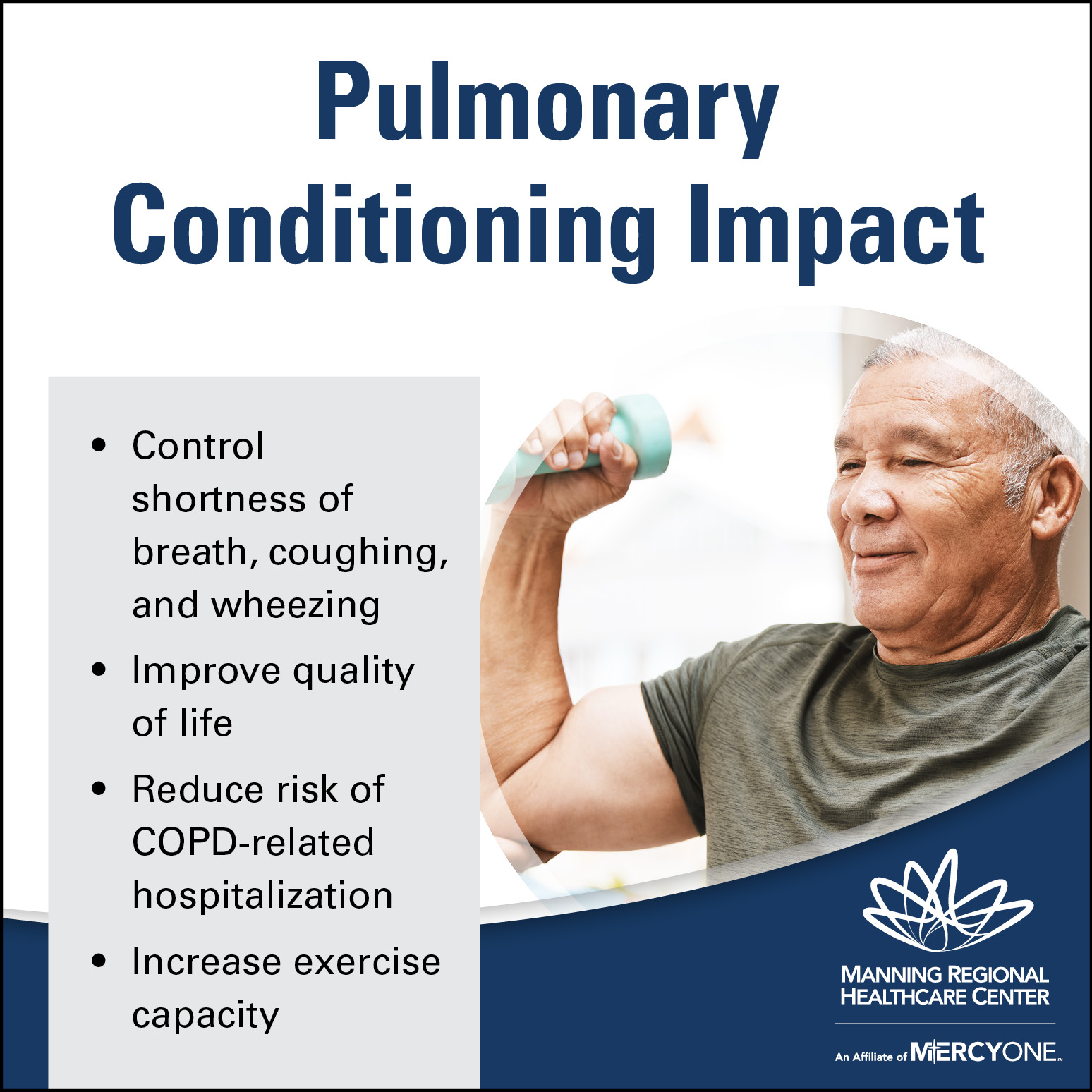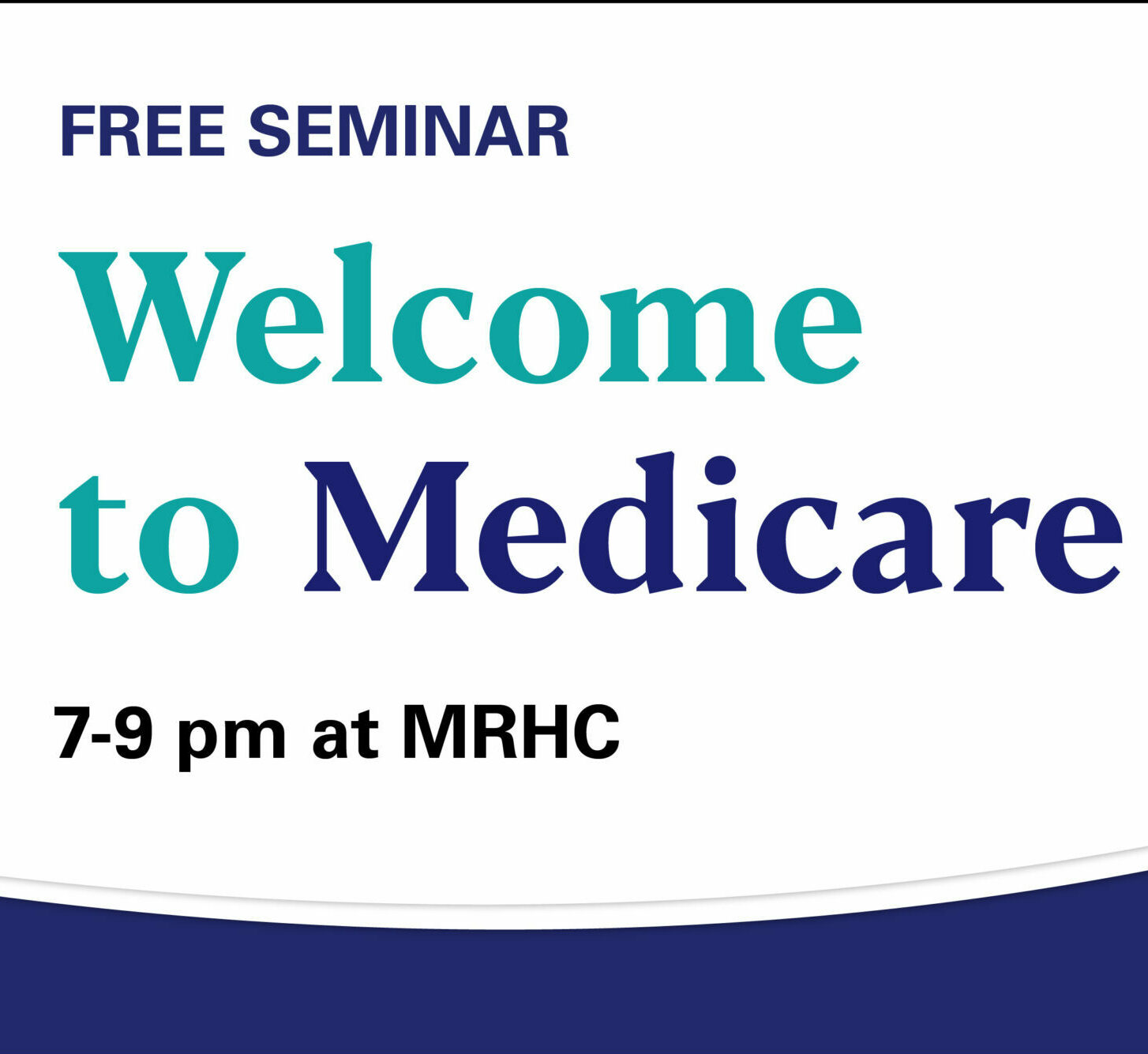Do you or a loved one struggle with chronic obstructive pulmonary disease (COPD) or respiratory challenges? A pulmonary conditioning program at MRHC can help individuals manage COPD symptoms and improve their quality of life.
“This integrated form of therapy can be a valuable tool in helping people manage their COPD and live a healthier, more active life,” said MRHC Physical Therapist, Taylor Nelson, PT, DPT. 
Chronic respiratory conditions, such as COPD, asthma, and pulmonary fibrosis, can significantly impede an individual’s quality of life. These conditions often lead to symptoms like shortness of breath, chronic cough, tightness in the chest, fatigue, and reduced stamina, limiting one’s ability to perform daily activities and affecting their overall health.
Recognizing a need to address these issues, various MRHC departments have collaborated to develop an integrated, specialized pulmonary conditioning program tailored to meet the unique needs of each participant. The program has a multidisciplinary approach, combining exercise training, education, and personalized support to empower individuals to manage their respiratory conditions effectively.
Once a patient’s primary care physician has recommended the need for a pulmonary conditioning program, a respiratory therapist will perform a Pulmonary Function Test (PFT) and gain a baseline understanding of the severity of the individual’s condition. Based on these results, a program will be personalized to meet the patient’s needs and goals.
Key components of a pulmonary conditioning program include:
- Individualized Exercise Regimens: Participants undergo comprehensive assessments to evaluate their current respiratory status and physical capabilities. Based on these assessments, personalized exercise regimens are crafted to gradually improve cardiovascular fitness, muscle strength, and endurance. This is the primary component of pulmonary conditioning and is facilitated by a physical therapist. Activities may include aerobic exercise, such as walking or cycling, and strength training. The exercise program will be tailored to individual needs and abilities and designed to maintain independence at home.
- Occupational Therapy: If needed, patients may be referred to an occupational therapist if activities of daily living are difficult or if their home is not conducive to their lifestyle. A living assessment may be performed and recommendations for alterations may be made.
- Education and Lifestyle Modification: Education plays a pivotal role in empowering individuals to take control of their respiratory health. Participants will gain insights into their condition, learn breathing techniques, and acquire strategies to conserve energy and manage symptoms effectively. Additionally, lifestyle modifications such as smoking cessation, proper nutrition, and stress management are emphasized to promote holistic well-being.
- Additional Services & Ongoing Support: Depending upon the condition, patients may also be recommended to a registered dietitian to develop a healthy eating plan to meet nutritional needs or a mental health counselor to help them cope with the emotional challenges of living with COPD. Participants receive continuous support and guidance from a dedicated team of healthcare professionals. Regular progress assessments are conducted to track improvements and make necessary adjustments to the treatment plan, ensuring optimal outcomes.
“Pulmonary conditioning has been proven to be effective in improving many outcomes in people with COPD,” Nelson said. “It can help you improve your ability to exercise without becoming out of breath; control COPD symptoms, like shortness of breath, coughing, and wheezing; improve quality of life by making it easier to perform everyday activities; and reduce the risk of being hospitalized for COPD exacerbations.”
Learn more about how pulmonary conditioning can help with COPD and other interstitial diseases. Contact the MRHC Therapy Department at (712) 655-2072 or your MRHC primary care provider at (712) 655-8100.

